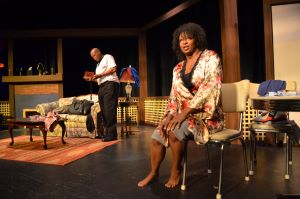The venerable Ciompi Quartet opened its 51st season with a program taken entirely from the 18th century. Baldwin Auditorium had a very good turnout, which given the number of concerts that occurred this weekend, was a tribute to the appeal of all the musicians involved.
In a long-standing tradition for Ciompi, the season’s first concert opened with the string quartet’s first composer, Joseph Haydn. As Haydn wrote eighty-three quartets, we suppose this tradition can carry on for some decades to come! The pick for this concert was the String Quartet in F-sharp minor, a rarely used key for a relatively rarely performed quartet.
This work was written in 1787 for cellist Fredrick William II of Prussia, whose pleasure-loving and indolent manner thankfully included supporting composers, thus leaving a legacy for future music lovers. (What the consequences may have been for Prussia, we leave to the historians to deal with.) Thus, we get some passages favoring the cello. For modern ears, the first movement takes some concentration to avoid thinking of Beethoven’s Fifth Symphony, since the dominant motif is the V for Victory dot dot dot dash, repeated many times. But Haydn, along with many others, got there first. Ciompi gave a sensitive and well-thought-out rendition.
Second on the program were two songs from Bach cantatas, performed by the superb soprano Julianne Baird, assisted by Joseph Robinson on oboe and Elaine Funaro on harpsichord. Performing “Bereitet die Wege” from Contata No. 132 and “Die Seele ruht in Jesu Händen” from No. 127, Baird proved to be as good as the glowing reports would indicate and brought these works to life in a remarkable fashion. Concertizing all over the world and specializing in Baroque music, her ornaments especially were finely crafted and a joy to hear. She had a clear and bright tone perfect for the material. Robinson was in fine form, with a technique and delicate touch that was well suited to this chamber format and hall. Needless to say, the audience was smitten.
After the intermission, the Ciompi Quartet returned with an arrangement of Bach’s Passacaglia and Fugue in C minor for string quartet and transcribed by violinist Nicholas Kitchen. Kitchen is well known in Durham as one of our native sons who went off to the big city and made good. (His parents were in attendance.)
There is a great challenge in arranging keyboard works to chamber or orchestral forces, which, while more practical for contrapuntal composers like Bach, still has inherent technical difficulties. In this case, it was interesting to hear this music performed by a string quartet and does bring it to audiences and locations otherwise impossible – organs not being very portable. However, in this case, it is probable that the original version is preferable, especially if performed on an instrument not far removed from the Baroque type known by Bach. The more dramatic parts came off well with the quartet.
Finally, we were treated to three works by Vivaldi for soprano, string quartet, and harpsichord. Baird combined in many florid passages with Eric Pritchard on first violin. In the style of the day, the rest of the musicians were left with a long series of simple figures and repeated notes, but the two featured parts were more than enough to carry the interest and bring life to the texts (two in Italian, one in Latin). The audience responded with an enthusiastic standing ovation, not only at the end of the program but also after the encore. Clearly, this concert was widely enjoyed by those in attendance, and was a credit to all concerned.











